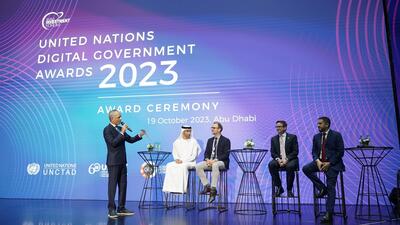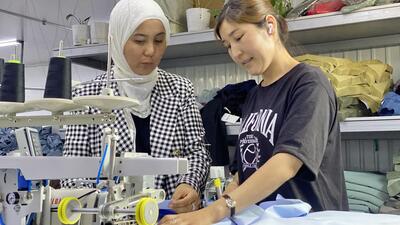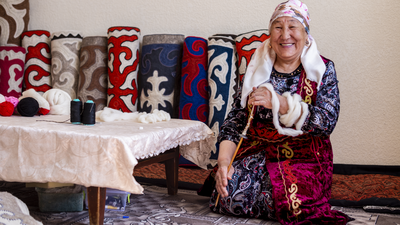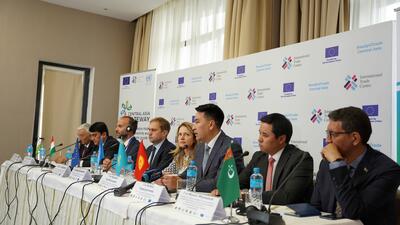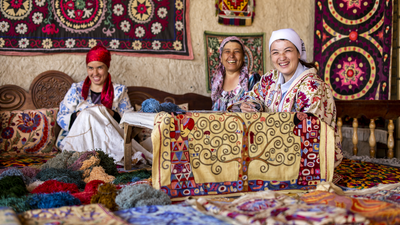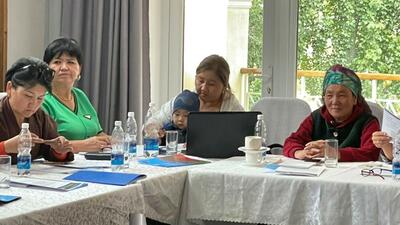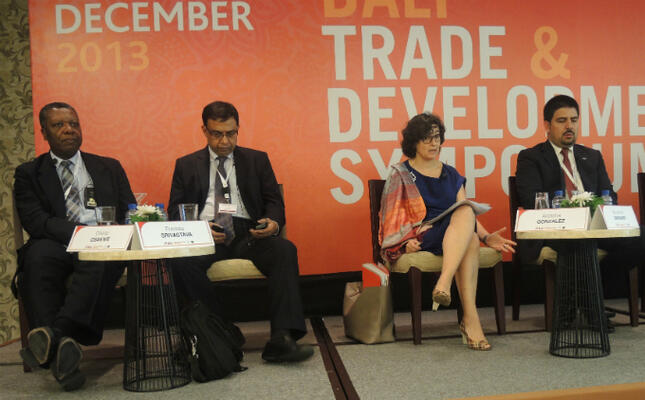
Ministers, ITC Executive Director discuss economic competitiveness of Central Asia
(BALI, INDONESIA) – Joining the World Trade Organization (WTO) has significance beyond the direct benefits of lower tariffs: it increases confidence of trading partners and can lead to attracting increased foreign direct investment, agreed members of a panel on Regional Cooperation and Trade in Central Asia: Integrating into the Global Ecoonomy in Bali, Indonesia earlier today.
The session was organized by the Central Asia Regional Economic Cooperation Program (CAREC) as part of the Bali Trade and Development Symposium, which is taking place in parallel with the Ninth World Trade Organization (WTO) Ministerial Conference in Bali this week.
“Acceding to the WTO has game changing potential,” said ITC Executive Director Arancha González and pointed to the examples of Viet Nam and Cambodia, where foreign direct investment flows surged in the years following their accession to the WTO.
The indirect advantages for domestic businesses, including small and medium-sized enterprises (SMEs) are significant, Ms. González said. “WTO membership helps to facilitate a pro-competitive business and regulatory environment for local businesses – large businesses as well as SMEs.”
Afghanistan conducts 90% of its trade with neighboring countries under bilateral agreements, so its main interest in joining the WTO lies in demonstrating that it is a rule-based economy ready to receive foreign investment, said Deputy Minister of Commerce and Industry Mozammil Shinwari.
Tajikistan, which joined the WTO earlier this year, hopes to benefit from increased investment in coming years as a result, said Deputy Minister of Economic Development and Trade Saidrahmov Nazriev, adding that the multilateral trading system provides small countries like Tajikistan with a forum to air their views and concerns. “WTO membership is particularly advantageous for small countries, as in the WTO all countries are treated equally regardless of their size and power,” he said.
For Kazakhstan, which is still negotiating its entry to the WTO, membership in both the multilateral and regional agreements is important, said Minister of Economic Integration Zhanar Aitzhanova. “We are committed to economic integration and regional cooperation within whatever framework we are in,” she said referring to her country’s membership of CAREC, as well as the customs union with Russia and Belarus.
Regional economic integration is particularly crucial in Central Asia, Ms. González said. “It is a necessity given the size of the economies of the region. “The economies need to be connected, not only in terms of hard infrastructure but also in terms of ease of doing business. “The level of non-tariff measures and the regulatory framework will determine whether SMEs in the region can become competitive,” she said.
Ms. González also spoke of ITC’s work in Central Asia, on building the capacity of trade support institutions to provide services to exporters. By way of specific examples, Ms. Gonzalez cited ITC’s contribution to Tajikistan’s accession to the WTO earlier this year, as well as the assistance provided to Kyrgyzstan in the preparation of its National Export Strategy and accreditation of the country’s quality assurance organization, the Kyrgyz Center of Accreditation.
ITC remains committed to the region, Ms. González said. Trade facilitation, or the easing of customs processes, is particularly important for land-locked countries, and ITC could provide assistance for the countries to implement the provisions of the WTO Trade Facilitation Agreement, currently under negotiation in Bali, she said.






